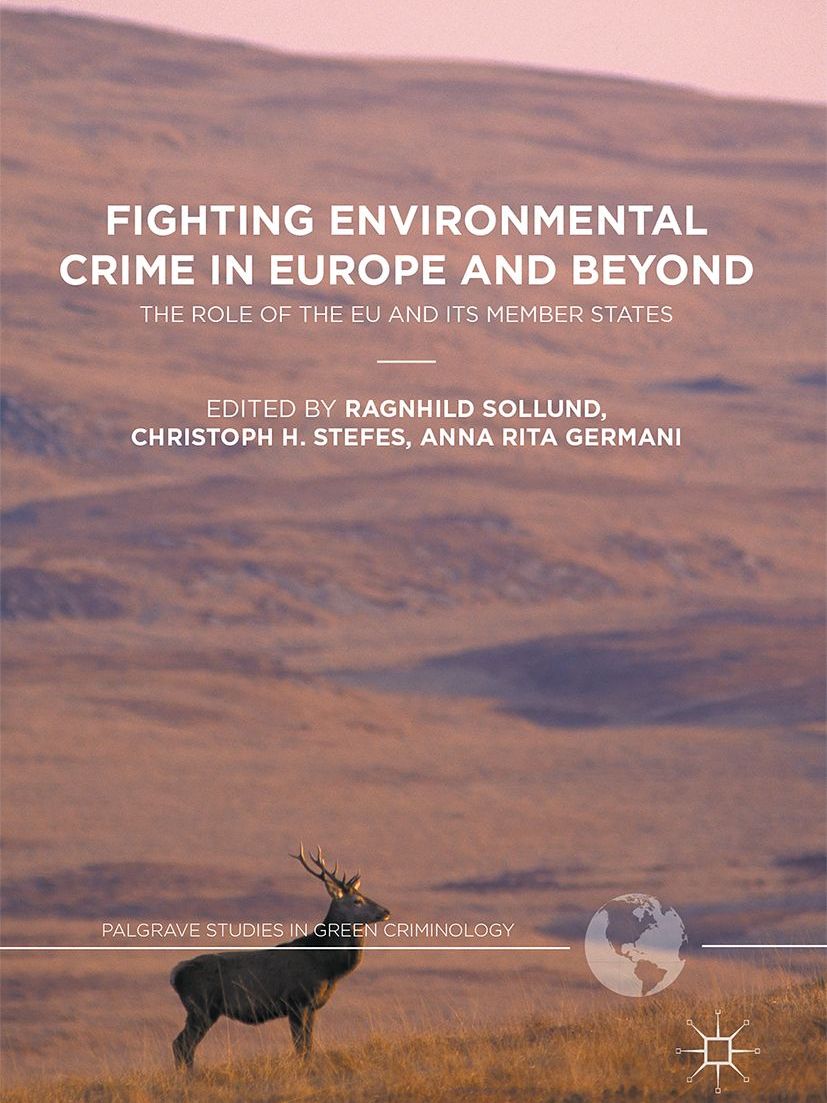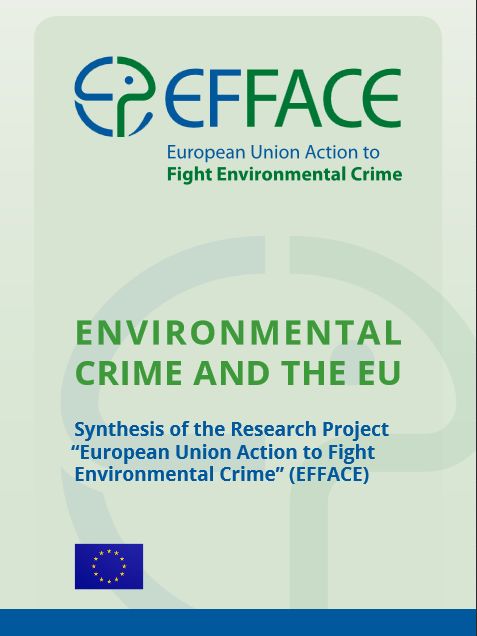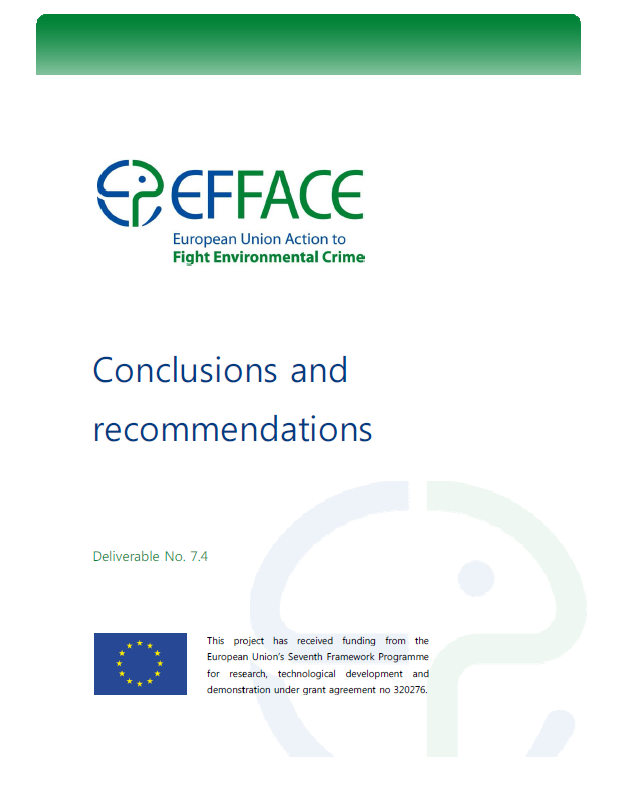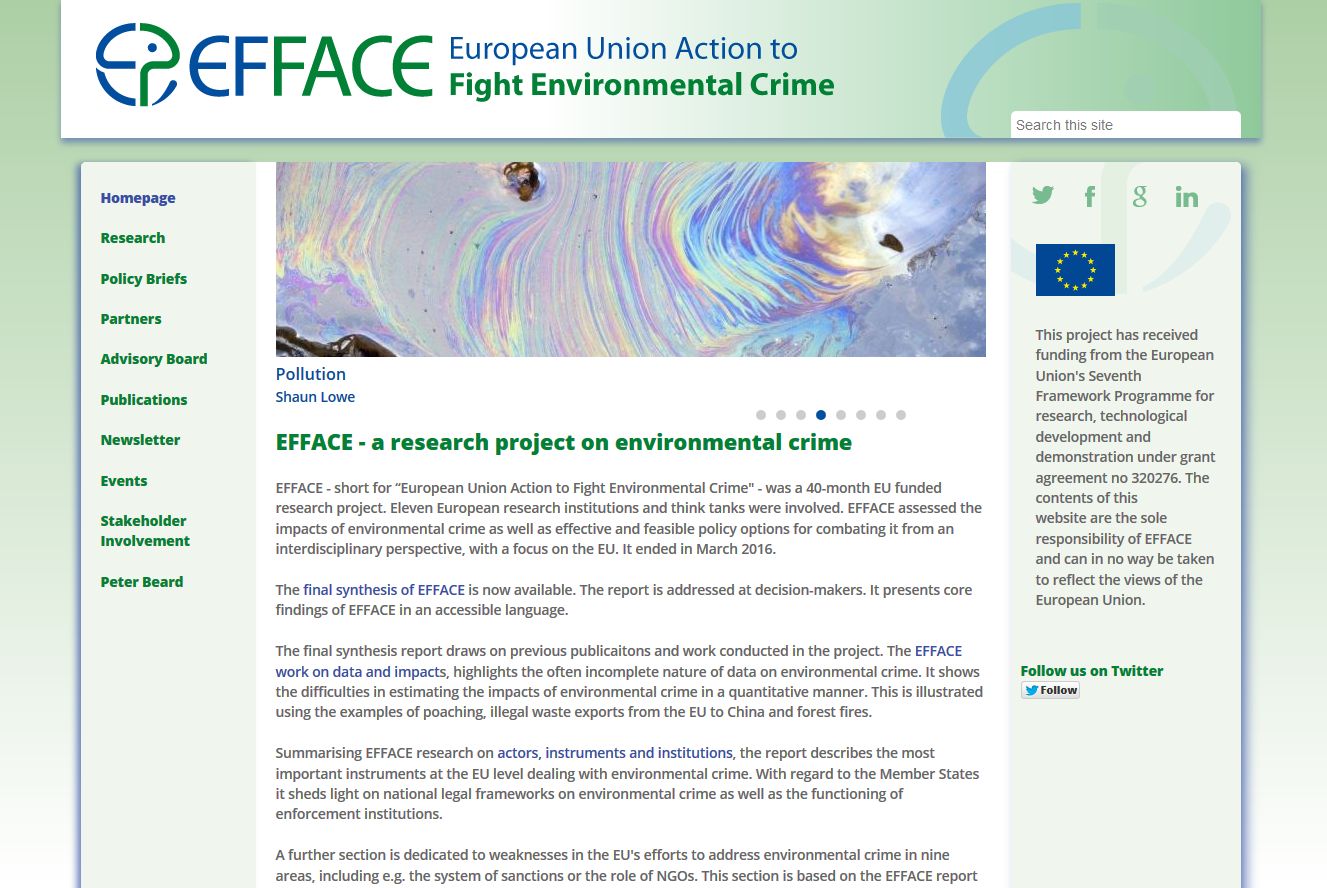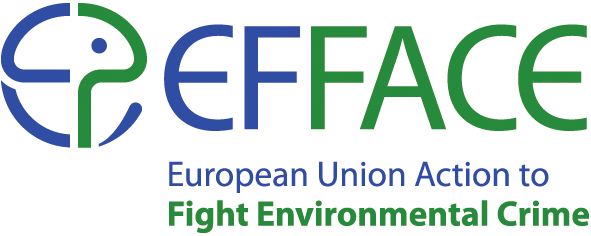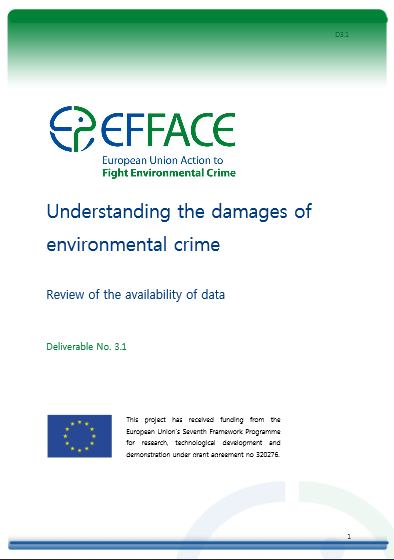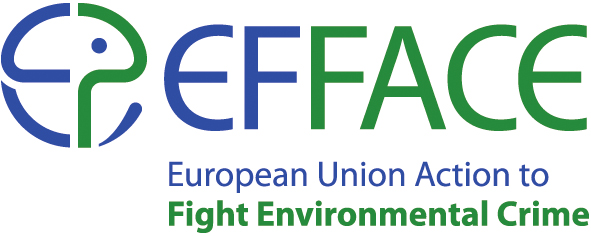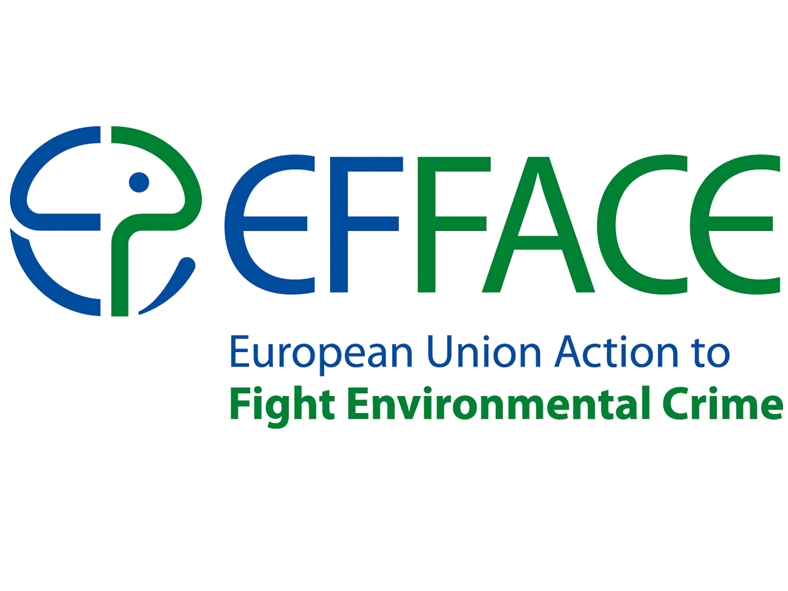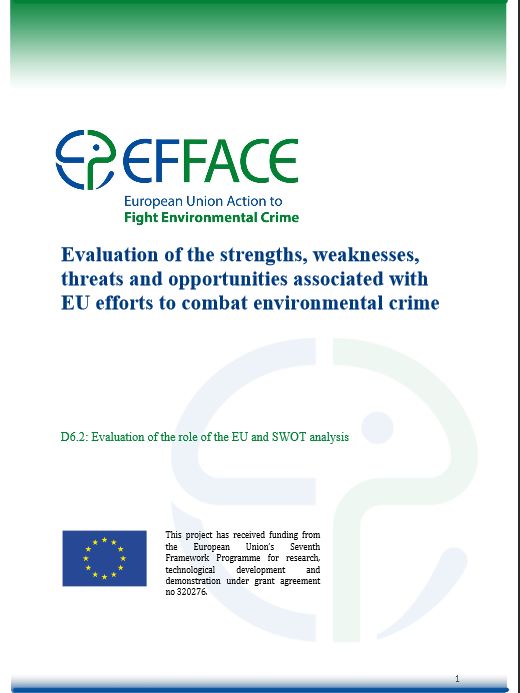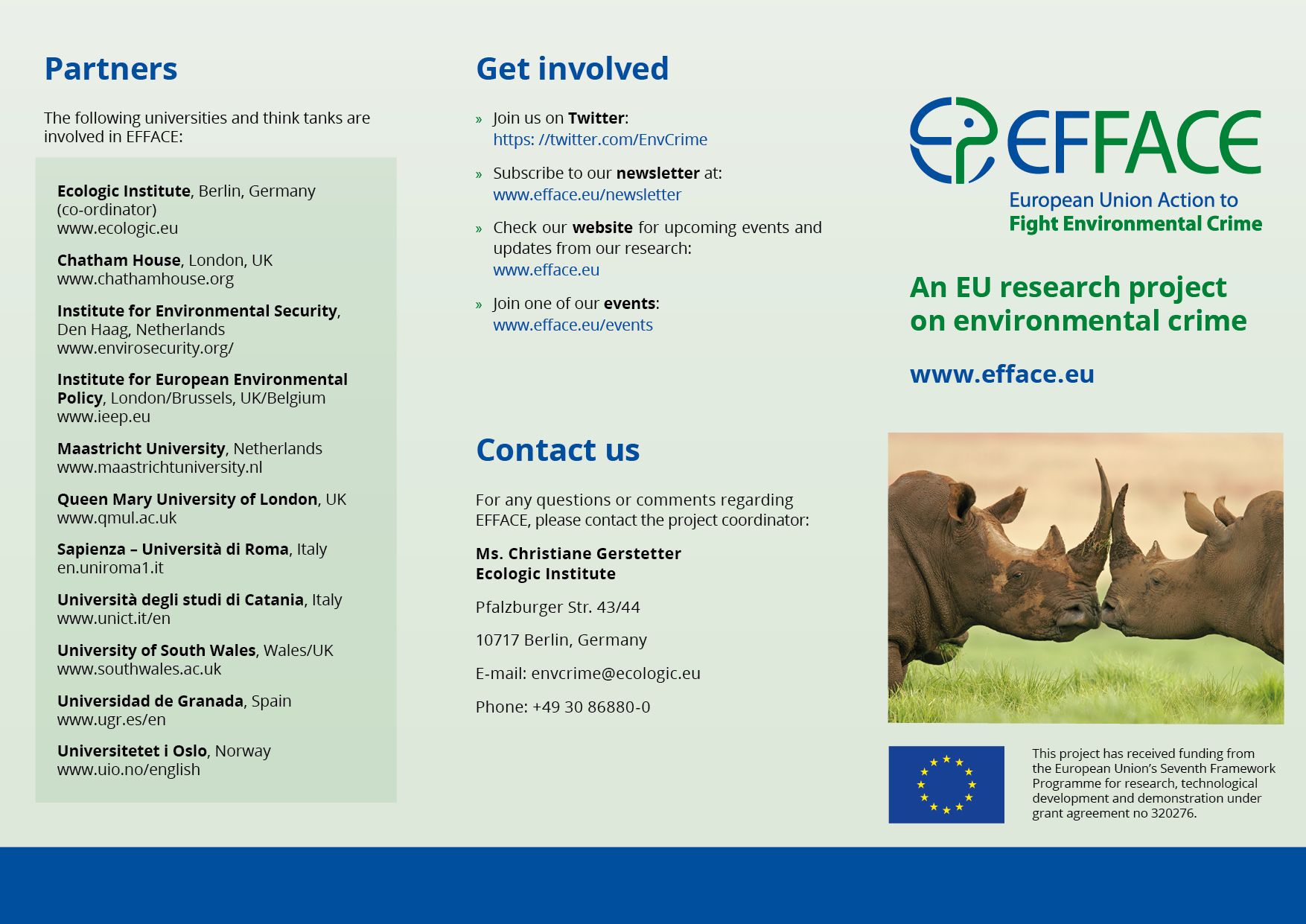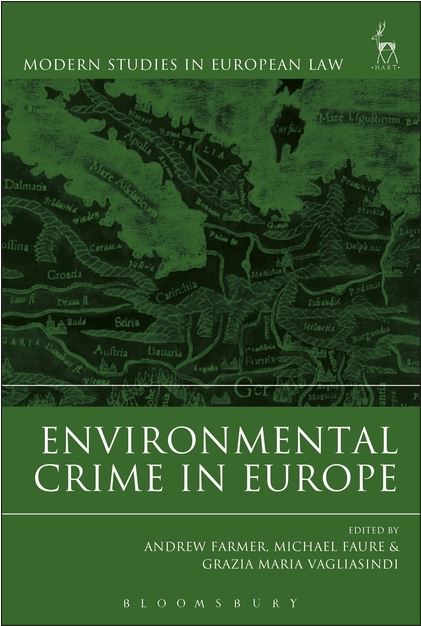European Union Action to Fight Environmental Crime (EFFACE)
- Project
- Research Program
- Duration
-
-
The interdisciplinary research project "European Union Action to Fight Environmental Crime" (EFFACE) assessed the impacts of environmental crime as well as effective and feasible policy options for combatting it, with a focus on the EU. The project was funded under the 7th Research Framework Programme of the EU (FP7). Ecologic coordinated the work of 11 European universities and think tanks involved in the project.
The killing of elephants for their tusks, the export of harmful waste in contravention of existing regulations, the deliberate discharge of noxious substances from vessels into water bodies or large scale industrial spill accidents can all be considered environmental crimes. Environmental crime damages the environment and often also has a negative impact on people living in affected areas. Environmental crime is sometimes linked to organised crime or corruption. However, due to its in official nature, environmental crime and its impact are difficult to detect, quantify and counteract.
There are different approaches to combating environmental crime, such as tracking and restricting the movement of certain goods across borders or penalising certain activities. At the EU level, the 2008 Environmental Crime Directive, and the 2005 Ship-Source Pollution Directive are important legal acts. The new provisions of the Lisbon Treaty have created new instruments and opportunities for increasing the effectiveness of EU measures against environmental crime through harmonisation and better co-ordination among Member States.
However, effectively combatting environmental crimes requires accurate and reliable information on what is going on. EFFACE helped to address existing gaps in knowledge. EFFACE had the following main elements:
- A conceptual framework laying down the research questions and definitions to be used in the project, drawing on previous research on the matter.
- An analysis of instruments, actors and institutions yields insights on how the fight against environmental crime has been approached so far within the EU and the strengths and weaknesses of the existing approaches.
- The costs and impacts of environmental crime were quantified, to the extent feasible, for different types of environmental crime.
- Several case studies on various countries shed light on the mechanisms and impacts of different types of environmental crime within and outside of the EU and possible counter-measures.
- The 'Evaluation of the strengths, weaknesses, threats and opportunities (SWOT) associated with EU efforts to combat environmental crime' brought together insights gained during the previous EFFACE research and evaluated the current approaches of the EU and its Member States in combating environmental crime.
On this basis, EFFACE developed options and policy recommendations for the EU to fight environmental crimes. EFFACE engaged in a dialogue with stakeholders and disseminated its results through various channels, including a series of workshops and the publication of several policy briefs. An advisory board consisting of practitioners and academic experts working on environmental crime provided input to EFFACE and ensured its results are of practical relevance and a pertinent contribution to existing research.
The core findings of EFFACE are summarised in the final synthesis report, addressed at decision-makers.
A project flyer [pdf, 500 kB, English] is available.




